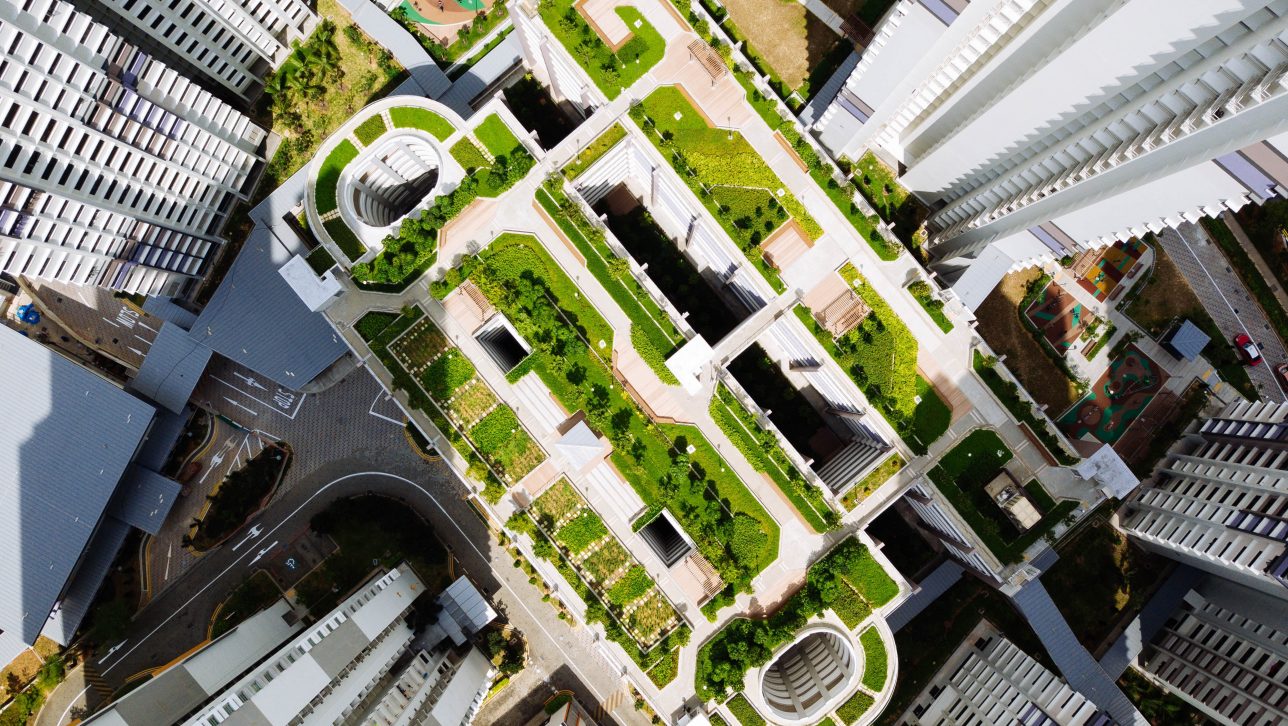
As of January 1st, 2018 Denver became one of the first cities in the nation to mandate Green Roofs on their buildings with the passing of Ordinance 300. Denver’s initiative is modeled after a similar initiative in Toronto, which became the first North American city to require rooftop gardens seven years ago. Until this year, the only other U.S. city that had a mandate around green roofs was San Francisco (passed legislation in 2017), though many others including Portland, Chicago & Washington, D.C. have varying levels of incentives for rooftops gardens and/or solar-energy systems.
Ordinance 300 – An Overview
The initiative modifies the local building code to require a minimum of 20% green roof or a combination of green roof and solar photovoltaics on the rooftops of new buildings and existing buildings over 25,000sf. The rooftop coverage requirements increase 10% for every 50,000sf and is capped at 60% for buildings of 200,000sf or more. The rule for existing buildings would be triggered when the roofs of buildings that meet the size threshold are replaced or when building additions cause their total floor area to reach 25,000sf. The initiative also outlines a number of exceptions and variances (with a cash-in-lieu payment) that may apply to new and existing buildings.
Denver Votes to Embrace Sustainability!
The grassroots advocates of Ordinance 300 wanted to put some teeth into our talk of being a progressive green city, help Denver meet its 2020 sustainability goals, and mitigate some of the Cities’ environmental problems. Denver ranks 3rd in the nation for the highest heat island and 8th in the nation for the worst ozone/particulate pollution. The Denver Green Roof Initiative furthermore states that the requirements would help improve the City’s management of storm water and increase energy efficiency.
Despite strong opposition from organizations such as Downtown Denver Partnership and the Denver Metro Chamber of Commerce, the initiative was passed by the public in November 2017 with 54.3% of the votes. Opponents’ main concerns are the costs to developers, whether the initiative is complicated by Colorado water rights laws, and how it will affect large developments planned by the city and potential investors in the City.
Group14’s Roles
The initiative has required the creation of a Technical Advisory Board to guide the development of more detailed rules and regulations, to provide clarity to the mandate’s language, and to enforce the ordinance. The City has already begun this process and had their first public hearing on January 17th of this year.
There is currently a prohibition of any adjustments to the Initiative. Starting in May, the City Council can, with a two-thirds majority, make changes to the ordinance. Council members have insisted they won’t seek to repeal it outright. Instead, the city has created a Task Force that is meeting over the next several months to offer recommendations and improvements to the ordinance. The Task Force includes initiative backers and opposition leaders, Denver Water and Xcel Energy, green roof and energy efficiency experts, and representatives from the construction and real estate industries. The Task Force has already begun these diligent discussions regarding construction and implementation of green infrastructure mandates, impacts on other municipal initiatives, and how best to meet the City’s air quality goals and the ordinance’s intentions.
Group14, an expert in sustainability and as a technical advisor to the Task Force will keep abreast of the implementation of Ordinance 300, will continue to inform our clients how this impacts their project, and offer best practices around how to green our roofs. To learn more about our Sustainability team, visit their services page: https://www.group14eng.com/services/sustainability/
